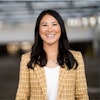Women have made great professional strides in the workforce but continue to face obstacles related to their gender, such as sexism and challenges related to balancing home and work. In fact, data show that at least half of all women in graduate degree programs drop out or consider dropping out of their Ph.D. programs. According to the Council of Graduate Schools, gender is the strongest predictor of doctoral degree completion in STEM fields, and the rate at which women complete their Ph.D. programs in these fields is 7 to 10 percent lower than their male counterparts.
Arizona State University researchers have created and launched an online, personal resilience training resource for women in science, technology, engineering and math fields that aims to increase their persistence in STEM doctoral programs. The CareerWISE web site was funded with a $3.2 million grant from the National Science Foundation.
As principal investigator Dr. Bianca L. Bernstein explained during the site’s formal launch at NSF headquarters in Arlington, Va., CareerWISE provides a four-step, problem-solving strategy to help women deal with problems that could lead them to leave their programs and includes hundreds of video clips from interviews with accomplished scientists and engineers in which they share their personal experiences and offer advice. The steps include assessing the problem, specifying an outcome, strategizing, and then executing a plan.
When conducting their research, the investigators wanted to learn more about what happens to women after they enter science and engineering doctoral programs and what factors lead them to doubt their capabilities or consider dropping out.
“These are women who are very accomplished and have already been very competitive to get into these programs. Moreover, one does not start a PhD program unless you’ve made a commitment to the field,” Bernstein said. “The very critical thing about the Ph.D. level is that it’s the passport, essentially, to faculty and research careers in STEM. So if somebody doesn’t finish, we’re losing another potential person to the research and faculty career progression.” Bernstein believes that this has a disproportionate impact on women working in fields in which they are already woefully underrepresented. The fewer there are, the more difficult it becomes to increase their numbers, she noted.
Bernstein described CareerWISE as a more experimental and even bolder approach to retention than other programs that typically try to make change at the institutional or department level. In interviews and focus groups, women provided examples of situations that have led to doubts or decisions to leave programs, such as inappropriate comments and touching or jokes about a woman’s place being in the home. Pregnancy can also impact whether a woman carries on for a variety of reasons that range from her adviser’s reaction to how chemicals could impact the baby.
“Often, it’s not that any one huge event happens; it’s that all these little things begin to erode your confidence and your decision to enter these programs or your ambition to continue,” Bernstein said. “We’re trying to equip each person who participates in CW with personal and interpersonal skills to embrace opportunities, to overcome any challenges and discouragements they have in the present, and to be prepared for future ones.”
The ability to anticipate and respond to challenges is critical, Bernstein explained, because women who successfully complete their programs will likely continue to face similar challenges.
“Because it’s the entrée to careers, we believe that the Ph.D. program is the closest a woman [gets] to what the career will be like when she enters it. The same issues will occur again and again, and it’s unrealistic to think we’re going to change the environment. We want to essentially inoculate our participants to anticipate and be ready to respond to these situations in the future,” Bernstein said.
The researchers conducted randomized clinical trials from November 2009 to May 2010, with 133 participants from more than 25 universities nationwide. The goal was to provide evidence-based, empirically validated results of CareerWISE’s effectiveness.
“Specifically, we investigated the impact of the web site on variables that included self-assessment of CareerWISE-related competencies, resilience, coping with adversity, barrier coping, self-efficacy and competency to achieve particular landmarks,” explained co-investigator Dr. Jennifer M. Bekki. They were chosen because they are perceived to influence persistence to doctoral degrees among women in STEM. The clinical trials found that, after an average of 5.39 hours spent on the site, even a small amount of CareerWISE training successfully influenced the relevant variables.
Moving forward, explained co-investigator Dr. Robert Atkinson, the researchers will work on adding opportunities for more interactivity, creating simulations that will enable visitors to the site to test the skills they’ve learned about through virtual role playing in a safe environment that also will provide feedback. They also will discover ways to improve the site.
“CareerWISE is a classic example of how we want to see interventions built,” said Dr. Joan Ferrini-Mundy, NSF’s acting assistant director for education and human resources.” It’s a model for the focus and the topic, it’s a model for the way in which it was designed, and I expect it will be a model for continued monitoring in the sense of how it’s used and employed.”





















